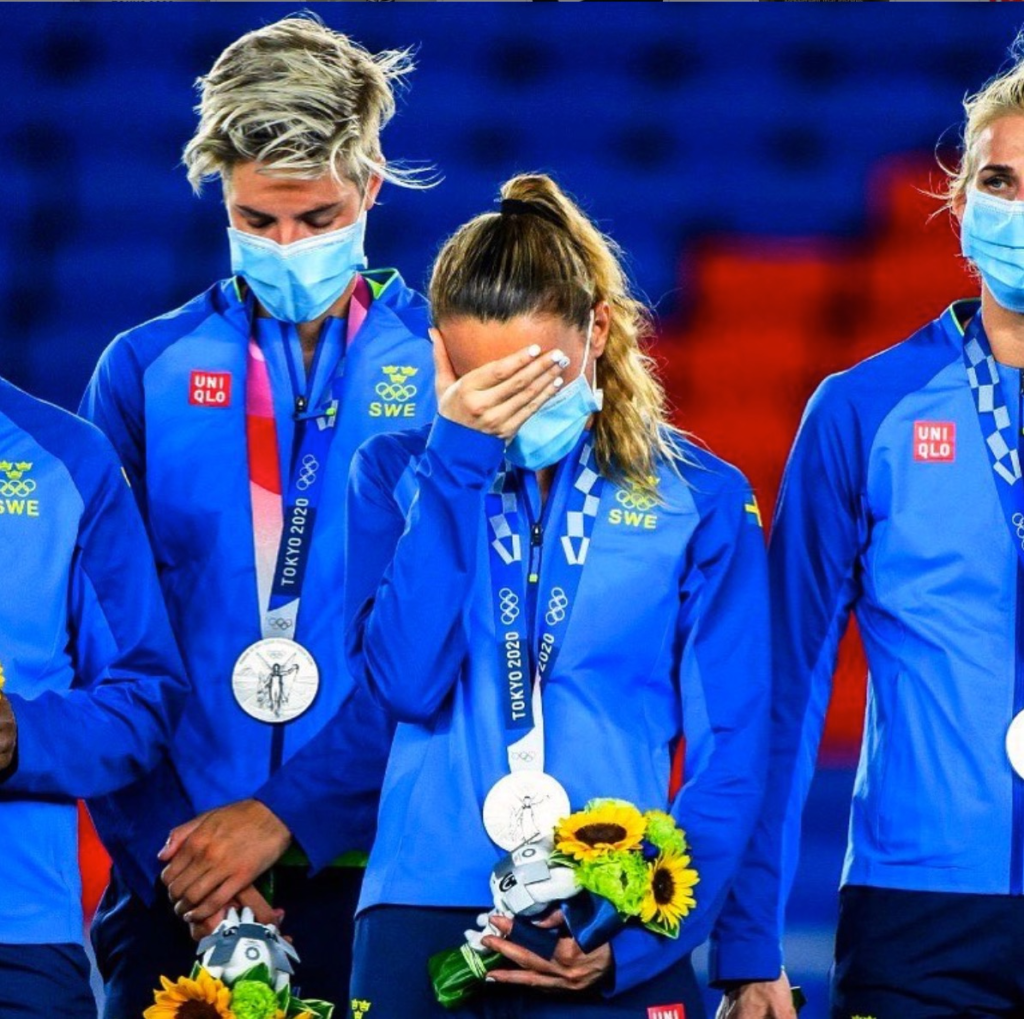Question for you.
Who do you think are happier? Bronze medalists or silver medalists?
The answer should be silver medalists, right? After all, silver is better than bronze. Second is better than third.
I was thinking about this question as I watched the women’s Olympic soccer games last week. Canada brought home its first gold medal, Sweden took the silver, and the United States walked away with the bronze.
If silver is better than bronze, the Swedes must be happier than the Americans.
Yet, if the looks on the athletes’ faces are any indication, this was definitely not the case.
Here’s a photo of the Swedish athletes with their silver medals:

And here’s a photo of the Americans with their bronze medals:

What’s going on here?
Multiple factors are probably at work, but I’ll focus on one.
The Americans came so close to winning nothing that they were happy to have won anything. If they had lost their last game, they would have come home empty handed. They were ecstatic to be walking away with any medal.
In other words, they were focusing on the gain of the bronze—not the loss of the silver or the gold.
But a silver medal was already guaranteed for the Swedish players as they walked into their final match. That last game was for the gold. As they stood on the award platform, many of them were thinking about how close they came to winning the gold.
In other words, they were focusing on the loss of the gold—not the gain of the silver.
It’s a natural human tendency to zoom in on the loss. Losses register far more acutely than gains. The brain, to paraphrase psychologist Rick Hanson, is like Velcro for the negative but Teflon for the positive.
To counteract this tendency, do what the American athletes did: Focus on what you gained, not what you lost.
Remind yourself that your life could have been much worse if things had turned out just a little differently.
Instead of just expressing gratitude for a positive event, picture a counterfactual world where that event had never happened. For example, instead of simply thinking “I’m grateful I met my partner” think, “What if I had never met my partner? What would my life be like?”
In one study, people who compared themselves to an alternative, worse-off version of their life situation reported more positive states than those who merely expressed gratitude. The mental subtraction of positive events counteracted people’s tendency to take them for granted. (I wrote more on that study here).
The message is simple.
Go ahead and aim for silver and gold medals in life.
But regardless of where you land, think like a bronze medalist. Focus on what you’ve gained—not what you could have gained.
P.S. Speaking of Sweden, I’ll be in Stockholm in late August (I’m also spending a few days in Copenhagen). If timing permits, I might arrange a meet-up with my readers. If you live in either city, please submit this form.
Bold



